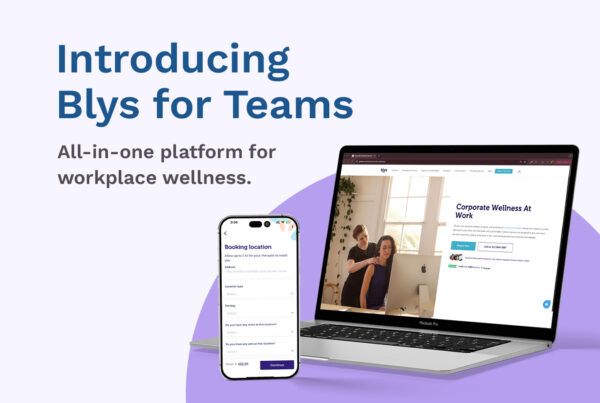
We all go through moments when life feels a little too heavy. Maybe you’ve been snapping more than usual, lying awake at night with thoughts running wild, or simply feeling off without knowing why. These aren’t just fleeting moods—they could be signs that your mind and emotions are asking for support.
In today’s fast-paced world, it’s easy to brush things off or keep saying, “I’ll handle it later.” But recognising when you need help is not a weakness—it’s a healthy step toward feeling better. Counselling isn’t just for major crises. It’s for anyone navigating stress, big changes, or emotional weight they can’t quite put into words.
And now, getting support has never been easier. With mobile counselling services, you can connect with a qualified therapist from the comfort and privacy of your home—no commute, no waiting rooms.
Let’s break down ten everyday signs that might mean it’s time to book a counselling session.
1. You’re Not Sleeping Well—Or At All
Finding it hard to fall asleep—or waking up at 3am with your mind racing—can be more than just bad sleep habits. Persistent sleep issues are often linked to stress, anxiety, or unresolved emotions that your brain continues to process long after the day ends. In fact, research shows a strong connection between psychological distress and insomnia, with anxious thoughts being a leading contributor to poor sleep quality.
Instead of simply pushing through with caffeine and hope, it might be time to look at what’s beneath the surface. A qualified counsellor can help explore what’s keeping your mind wired, whether it’s internal pressure, emotional overload, or something deeper. Even a few sessions can lead to insight—and better rest.
If your nights are restless and your days are dragging, it’s worth asking: Is my mind trying to tell me something?
2. You Overthink Even the Smallest Things
A bit of overthinking is normal—but if your brain won’t switch off, even for the smallest decisions, it might be time to take a closer look. Chronic overthinking can lead to mental fatigue, anxiety, and a sense of being stuck.
You might notice:
- Replaying conversations on loop
- Struggling to make simple choices
- Always imagining worst-case scenarios
- Feeling tense even during downtime
- Mental exhaustion without much action
Counselling helps you spot the root causes—whether it’s fear of failure, people-pleasing, or past experiences that still echo. Therapy gives your thoughts room to breathe and break free from the cycle.
If your inner voice is getting louder and harder to manage, talking it through with a professional might be the reset you need.
3. You Feel Numb or Disconnected
If you feel like you’re just going through the motions—detached from people, your surroundings, or even your own emotions—it’s not something to ignore. Emotional numbness is often a sign your mind is trying to cope with something overwhelming.
According to Beyond Blue, this can be linked to depression, trauma, or burnout.
Common signs include:
- Struggling to feel joy, sadness, or excitement
- Avoiding people or isolating yourself
- Feeling like life is happening around you, not with you
- Losing interest in things that used to matter
Counselling helps you gently explore what’s underneath that flatness. It’s not about “fixing” you—it’s about reconnecting with what you feel and need, at your own pace.
4. You’re Always Tired, Even With Rest
There’s tired—and then there’s that deep, lingering exhaustion that sleep doesn’t fix. When your body feels heavy, your motivation low, and rest gives no relief, it could be more than just physical fatigue. Emotional overload often shows up in the body, draining your energy without you realising why.
This kind of tiredness can come from constantly masking your true feelings, staying “on” for others, or carrying mental weight you haven’t yet unpacked. Over time, it builds into a fatigue that no nap or weekend off can undo.
Counselling creates space to lighten that load. Talking things through with someone trained to listen can bring the kind of relief your body has been asking for all along—quietly, but persistently.
5. Your Relationships Are Strained
Even the strongest relationships can feel the tension when your mental health is off balance. You might find yourself snapping over small things, pulling away without meaning to, or feeling disconnected from the people you care about. These aren’t just mood swings—they’re often signs of something deeper needing attention.
Counselling offers a neutral space to figure out what’s really going on beneath the surface. Maybe you’re bottling up resentment, feeling overwhelmed by pressure, or stuck in a pattern that keeps repeating itself.
For example, someone might constantly argue with their partner about household chores. But in therapy, they discover it’s not really about the dishes—it’s about feeling unappreciated and unheard. Once that’s uncovered, they can finally talk about what they truly need, without the conflict getting in the way.
If tension keeps showing up in your closest connections, it could be your inner world asking for support.
Strengthening your emotional connection can also start with simple shared experiences like this at home couples massage idea for your next date night.
6. You’re Constantly Stressed or Anxious
A little stress now and then is normal—but if you’re feeling tense all the time, even without a clear reason, it could be a sign of chronic anxiety. Unlike short bursts of stress, anxiety sticks around and often spills into areas of your life that used to feel fine.
You might notice:
- Worrying about things you can’t control
- Feeling restless or on edge for no reason
- Trouble focusing or staying present
- Physical symptoms like a tight chest or racing heart
- Avoiding situations that never used to bother you
Counselling gives you a safe space to explore what’s behind the anxiety. Whether it’s pressure you’re putting on yourself or deeper fears you haven’t named yet, therapy helps untangle it in a way that’s manageable and personal.
You don’t have to live on high alert. There’s support available.
7. You Struggle to Enjoy Things You Once Loved
When the things that used to bring you joy now feel flat or meaningless, it’s often more than just a passing mood. This lack of interest—whether it’s in hobbies, social plans, or even simple pleasures—can be a sign of emotional fatigue or depression.
It’s not always about sadness. Sometimes, it’s just a quiet detachment that creeps in slowly. You might still go through the motions, but without feeling anything real behind them.
Therapy helps you reconnect with what matters. It’s a space to explore what’s shifted, what’s weighing you down, and how to find your way back to a sense of purpose. Even small insights in counselling can reignite motivation and emotional clarity over time.
If joy feels distant and everything feels like effort, you don’t have to wait for it to get worse. Support is closer than you think.
8. You’ve Experienced a Recent Loss or Life Shift
Major changes—like losing a loved one, ending a relationship, or relocating—can leave you feeling unsteady, even if things look fine on the outside. These transitions often stir up deeper emotions that are hard to process alone.
You might notice:
- Feeling lost or disconnected from your routine
- Trouble adjusting or making decisions
- Emotional ups and downs that seem out of place
- Pressure to “move on” before you’re ready
Counselling offers a space to process change at your own pace. It’s not about speeding things up—it’s about helping you build emotional stability and resilience when everything feels unfamiliar.
If you’re carrying more than you’re sharing, therapy can help lighten the load.
For a gentle, energy-based approach to emotional balance, you might also enjoy reading about the benefits of mobile Reiki healing sessions.
9. You Keep Saying “I’ll Be Fine” — But Don’t Feel It
Saying “I’ll be fine” can sound reassuring—but if you don’t actually feel fine, it’s worth paying attention. Minimising your own struggles may feel easier in the moment, but it doesn’t make them any less valid.
You might notice:
- Smiling or joking through discomfort
- Avoiding deeper conversations about how you really fee
- Feeling pressure to stay “strong” for others
- Suppressing emotions until they build up
- Quietly burning out while telling others you’re okay
Therapy offers a space where you don’t have to put on a brave face. It’s a chance to stop performing and start being honest—with yourself and someone trained to help.
If you’ve been pushing your feelings aside for too long, talking to someone could be the first real relief in a while.
10. You’ve Thought About Therapy More Than Once
If the idea of therapy keeps popping into your head—during quiet moments, stressful days, or late at night—it’s probably not random. Often, we instinctively know when something feels off, even if we can’t fully explain it.
When you’ve considered counselling more than once, it’s a gentle signal from your mind that it’s time to check in.
The good news? You don’t have to figure it all out before reaching out. Whether you’re in need of counselling services in Adelaide, Canberra counselling services, or counselling services in Perth, mobile options now make it easier than ever to start from wherever you are.
You don’t need a crisis to begin therapy. Sometimes, curiosity about how you’re really doing is reason enough.
How Counselling at Home Makes Support More Accessible
Starting therapy can feel like a big step—but it doesn’t have to come with added pressure. With therapy at home, support becomes more flexible, more private, and far less intimidating.
Whether you’re browsing Canberra counselling services, looking into Senami Counselling & Psychotherapy Services, or exploring options in your city, mobile counselling is changing the game. No long commutes, waiting rooms, or rigid appointment slots—just care that fits around your life.
Getting help at home means:
- You’re in a space where you feel safe and at ease
- Sessions are more convenient and less disruptive to your schedule
- It’s easier to open up without the formal setting of a clinic
Mobile services like Blys bring professional mental health support right to your doorstep—whether you’re in Adelaide, Perth, Canberra, or beyond.
Ready to speak with someone who gets it? Find a qualified therapist who comes to you.
How to Book a Mobile Counselling Session with Blys
Getting support shouldn’t be complicated. With Blys, booking a mobile counselling session is simple, private, and stress-free. Here’s how to get started:
- Visit the Blys Counselling Services page
- Choose your location. Blys is available across major cities, including Adelaide, Perth, and Canberra.
- Select your preferred date and time
- Get matched with a qualified therapist near you
- Start your session from the comfort of your home
No waiting rooms. No long drives. Just real support, delivered to you.
Take the First Step Today
Noticing the signs is more than half the battle—it means you’re already tuning in to what your mind and body need. Whether it’s disrupted sleep, emotional numbness, or simply not feeling like yourself, acknowledging that something’s off is a brave and important first step.
The next one doesn’t have to be big or overwhelming. With mobile counselling services, getting support is as simple as opening your door. No pressure to commute, no clinic setting—just qualified care, brought to you in a way that fits your life.
Blys connects you with experienced therapists who understand what you’re going through, no matter where you’re starting from. Whether you’re in a quiet spiral or navigating loud life changes, help is available—on your terms, in your space.
Give yourself the support you deserve—book your session today!



